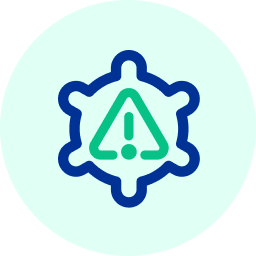Introduction
In the world of pharmaceutical manufacturing, especially within sterile environments, professionals face daily challenges that seem pulled straight from a science fiction scenario. Imagine donning a spacesuit, layering gloves, and navigating through a labyrinth of gowning procedures, only to interact with a computer interface that feels decades old. This scenario isn't just hypothetical—it's the reality for many working in biotech drug manufacturing today.
The Present Challenge
Visiting a sterile manufacturing facility reveals the extent of this issue. Technicians, dressed in multiple layers of protective gear, engage with outdated computer interfaces featuring hundreds of screens. These interfaces demand unnatural methods of interaction, such as using a keyboard and mouse while encumbered by gloves and suits. This approach to human-computer interaction has remained largely unchanged for decades, forcing billions of humans worldwide to adapt to inefficient and unnatural communication methods with their digital counterparts.
AI as a Transformative Solution
Enter the era of Artificial Intelligence (AI) and Natural Language Processing (NLP). These technologies promise to revolutionize our interaction with computers, shifting from the archaic push of buttons to the natural flow of voice, gestures, facial expressions, and even thoughts. Imagine communicating with your computer as effortlessly as you would with another human. This isn't just efficient; it's a time-tested method of interaction that could unlock unprecedented productivity gains and creative potential.
Envisioning the Future
With AI, the future of pharma manufacturing—and indeed, all sectors—is poised for a seismic shift. Imagine troubleshooting complex machinery through a simple chat with your computer, free from the physical constraints of keyboards and touchscreens. Supply chain specialists could converse with their systems without the dizziness induced by outdated interfaces. Quality Assurance Associates could focus on truly adding value, leveraging AI to identify errors and improve products more effectively.
Conclusion
The advent of AI in our workspaces promises not just an improvement, but a complete transformation of how we interact with technology. The vision of a future where "I have an AI for that" replaces "I have an app for that" is not just wishful thinking—it's a glimpse into an imminent reality, as exemplified by innovations like Jesse Lyu's Rabbit R1. To embrace this future, we must be willing to reimagine our entire computer infrastructure paradigm. The change AI will bring to Pharma Manufacturing and beyond isn't just massive; it's revolutionary.


COMMENTS